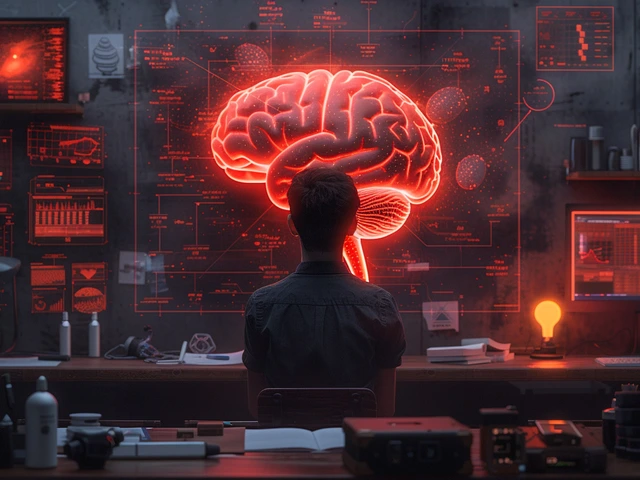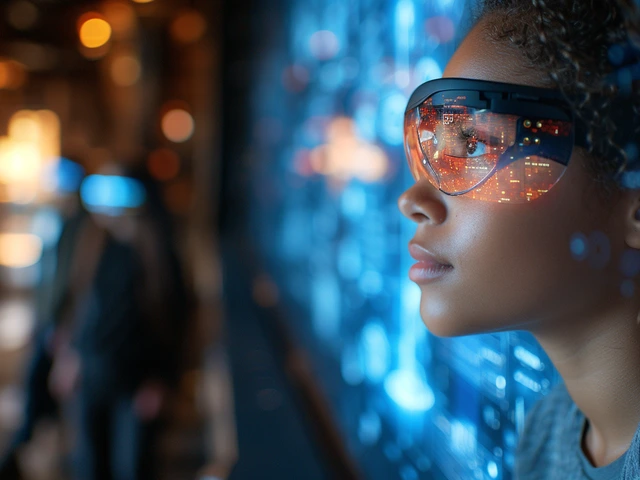Understanding the Ethics of Artificial Intelligence

Understanding the Ethics of Artificial Intelligence
The Colourful Spectrum: Ethics in Artificial Intelligence
So here we are, talking about ethics and artificial intelligence. It's a bit like discussing cheese and fine wine, isn't it? They seem worlds apart, but let me tell you, they complement each other so beautifully that it was a match made in heaven. Or should I say, a match made in a computer laboratory?
But let's not rush. As dizzyingly futuristic and sci-fi as it sounds, the domain of artificial intelligence (AI) and its pertaining ethics is a crucial issue that humanity is grappling with today. Turns out, the future isn't just about hoverboards and shiny silver clothes. Who knew?
You see, AI refers to the simulation of human intelligence processes by machines, especially computer systems. In short, we're trying to teach robots how to think like us. Sounds easy, right? Nevertheless, we can't ignore the ethical implications that come hand in hand with this new-found tech novelty.
A Spoonful of AI: How it Works
Before diving headfirst into the deep waters of ethics, let's take time to understand how this unique, sometimes perplexingly complex concept of artificial intelligence operates. It’s akin to asking ourselves what makes John, well, John, while we're on it.
Typically, these processes of artificial intelligence include learning, reasoning, self-correction, perception, and the ability to manipulate and move objects. Quite a handy chap to have around the office, wouldn't you say? AI primarily works through a combination of large amounts of data and swift computational processing.
For instance, imagine a kid who learns that a glowing hot stove equals 'no touchy-touchy'. The same principle applies to a piece of AI. It learns from data, it makes connections, and as a result: it teaches itself.
A truly magical thing, if you ask me. And yet, it’s happening right now, as you read this article, probably leaning back in your chair and daydreaming about your next cup of coffee.
Balancing the Weighing Scale: The Ethical Implications
This is where things start to get distinctly less rosy. As we plunge headlong into the murky waters of ethics, the thrill of creating pseudo-human intelligence may suddenly seem a little less appealing. It's somewhere between a Sherlock Holmes novel and a thrilling roller coaster ride. Only, with possibly a lot more paperwork involved.
The fundamental ethical questions associated with AI revolve around power, control, morality, privacy, trust, freedom, and equality. If you're already feeling a headache coming on, believe me, you're not alone. Because when you start teaching a computer how to think, one cannot sidestep the tricky question of teaching it right from wrong. Then the question arises, whose right and whose wrong?
The answer to this billion-dollar question changes with culture, religion, demographic and a thousand other factors. I cannot possibly attempt to give an exact answer here – it's the equivalent of attempting to find that pesky last sock that always seems to disappear in the washing machine. I still hold out hope both for the sock, and the answer.
The Hobbit’s Struggle: How can we Manage AI?
So here we stand, in the shadow of this giant question mark. The big 'how' in managing AI without allowing it to transform into an Orwellian nightmare. My two cents? There's no one-size-fits-all answer. Just like picking the perfect pair of jeans, it's going to take some trials and tribulations.
However, there are certain things we can do. Emphasize diversity, for instance. AI should mirror the myriad shades of human experience, not just a privileged minority. Take steps to ensure AI doesn’t infringe on individual privacy rights. Understand AI decision-making by rendering it more transparent.
And perhaps most importantly, always maintaining the dialogue on AI ethics, in societies, institutions, and among decision-makers. Because - like it or not - AI is here to stay. We might as well start making rules for it, or the day might not be far when AI starts making rules for us!
A Lifelong Tango with AI: A Personal Journey
I'm a bloke from Adelaide, and once upon a time, this bloke became infatuated with the world of technology. I remember playing around with my dad's Commodore 64 back in the day. It was unbelievably cool. And also, quite possibly, the least ethical gadget I've ever laid my hands on.
The glitzy world of AI I fell in love with as a child, seemed so unrelated to that dinosaur of a computer. And yet, just like life connects the dots for us, the ethics of AI hit me real hard a few years ago. It was during a project where I was designing an AI algorithm to optimise hospital processes.
I realised that my seemingly innocuous lines of code could potentially decide whether a patient got scheduled for urgent surgery or was put on a waiting list. That shook me. The gravity of building something, which, although based on algorithms, could nonetheless carry life-altering implications was a wake-up call.
Since then, I've learnt to tread more carefully, aware of the colossal responsibility my profession carries. I've learnt to respect the fine line separating innovation from intrusion. For every code I write, I make sure to ask myself: is it ethical? And more often than not, I find a balance. Because isn't life just a grand old balancing act? That's something no AI can ever be programmed to understand. Well, not yet anyway.
About
CH Tech Development is a premier resource for the latest updates and insights in the world of technology development. We provide extensive information, articles, and guides on cutting-edge technological advancements. Explore our site to empower your knowledge about the dynamic field of tech development.
Latest Posts


Tracing the Journey of Debugging: From Historical Roots to Modern Solutions
By Silas Hawthorne Mar 1, 2024

AI Tricks: The Manual for Tech Excellence
By Silas Hawthorne Jul 26, 2023

Artificial Intelligence: The Future of Home Security
By Silas Hawthorne Jul 27, 2023

Write a comment